By RNZ.co.nz. Republished with permission.
National and the government have worked together to design new housing density rules that would allow three homes three storeys tall without a consent.
Watch the media conference here:
In a rare show of bipartisanship, Labour government ministers Megan Woods and David Parker shared the podium with National’s leader Judith Collins and housing spokesperson Nicola Willis to announce the changes at midday.
The parties worked together on the new Resource Management (Enabling Housing Supply and Other Matters) Amendment Bill, which aims to make it easier to build houses.
It includes new intensification rules allowing up to three homes three storeys high to be built on most sites without resource consent, a change from district plans which typically only allow for one home of up to two storeys.
This would apply in Auckland, Hamilton, Tauranga, Wellington, and Christchurch, where councils would be required to adopt medium-density residential standards.
Photo: New Zealand Government
Councils could choose to make the proposed standards more permissive to builders, and developers could apply for a resource consent to go further than what the standards would allow.
“Exemptions for certain circumstances such as natural hazards or where a site has heritage value will be maintained,” Parker said.
The government said modelling by PwC predicted the new rules were predicted to result in about 48,200 to 105,500 new homes being built in the next five to eight years.
Collins said she had written to the environment minister in the last Parliamentary term, offering to work together on RMA reform, and the Bill was the result of work over the past year.
“They welcomed National’s contribution to further development of policy to allow a serious uplift in new housing in urban areas … National has appreciated the opportunity to contribute constructively to this development process.”
Woods said it made sense to work together where there was a consensus.
“Having broad political consensus on these changes gives homeowners, councils, investors and developers greater certainty. We are pleased to have National’s support in enabling New Zealanders to have access to modernising our cities in this way.”
“New Zealand has a serious housing shortage, and has simply not built enough homes to meet the needs of New Zealanders. This is making housing increasingly unaffordable with its effects felt most strongly by New Zealand’s poorest, most vulnerable and youngest generations.”
The bill would also bring the National Policy Statement on Urban Development forward by one year, so councils in metropolitan areas would need intensification policies in place by August 2023, after notifying plan changes by August 2022.
Parker said the workload for councils would also be reduced by removing some of the existing complexities in the policy statement, which would make it simpler to implement.
Collins said rolling back consenting rules was key to addressing the housing shortage.
“It is crazy to me that existing planning rules in New Zealand actually make it harder to get houses built, harder and more expensive … in April I took the step of introducing my own member’s bill and writing to all party leaders asking for their support. Our housing emergency is an absolute crisis.
“Housing is an issue that touches all Kiwis … we see young families forced to save for a decade to build a deposit and putting off decisions because of that lack of certainty.
“National supports this policy because it focuses on supply. Rather than making life harder for property owners, this policy tells them that you have the right to build.”
Local government plans to change housing rules have spurred debate Wellington and Auckland over protection for heritage areas and which suburbs to open up to higher-density zoning.
Collins made an impassioned argument against those who worried reduced regulation would mean a community losing its character.
“To those… I say this: Our communities lose their character when people can’t afford to own their own home.
“Stronger communities are formed when families can own their home and it is in the interests of all Kiwis to live in a property-owning community, where people put down anchors in their community and have a stake in local affairs; where kids get to stay at the same school; where the politics of envy aren’t fuelled by rapidly rising house prices; where our children can afford to buy a home and start a family and growing up in a property-owning democracy.”
Willis said New Zealand had some of the most unaffordable housing in the world.
“And Kiwis expect MPs to take action to address it. Homeowners and non-homeowners all know that the property ladder has simply been pulled out of reach of too many people. Our housing shortage is fuelling inequality and robbing younger New Zealanders of hope.”
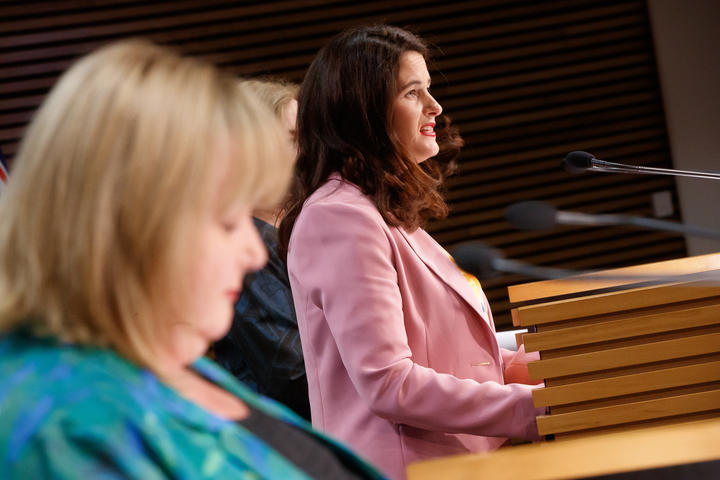
National’s housing spokesperson Nicola Willis alongside Woods and Collins. Photo: Pool / Stuff / Robert Kitchin
She said homeowners who preferred to live in a one-storey home with a large garden should take comfort in the knowledge they would not be forced to demolish their existing home and many such homes would remain, while those desperately seeking smaller housing would welcome far more of such housing stock.
“These measures are not about a one-time increase in housing stock, but a permanent shift in the flexibility of the supply of housing and over time it will deliver more affordable housing.”
She thanked Woods and Parker for engaging with National.
Woods said she hoped the new bill would be the death of nimbyism.
“This has been an incredibly fraught and difficult issue for so many councils in different parts of the country … when there is a housing crisis that you need to lay aside some of your differences.
“We do need to step up, take that leadership, and that we do need to help our councils work through these issues with their local communities.”
The legislation being introduced today will have first reading next Tuesday 26 October, followed by a three-week submission period, aiming to be passed in the last week of Parliament for this year by 16 December.

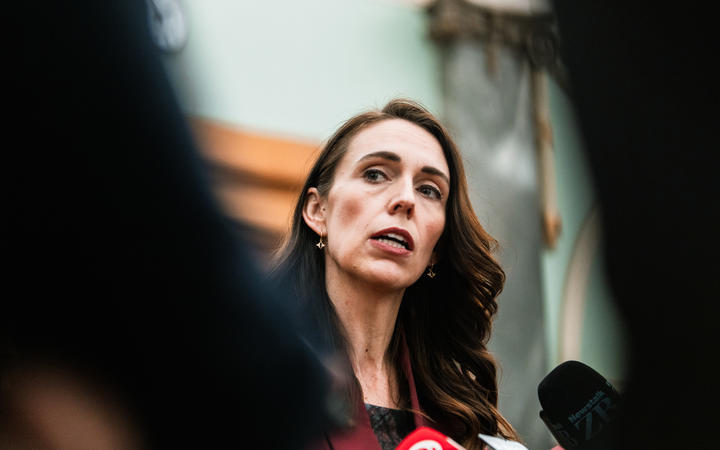
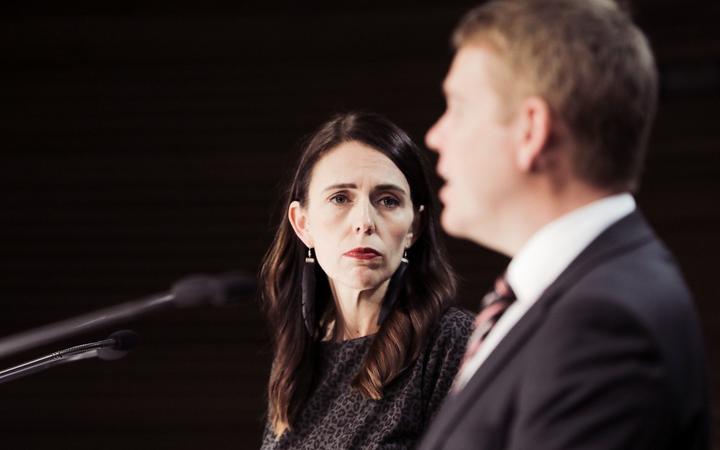
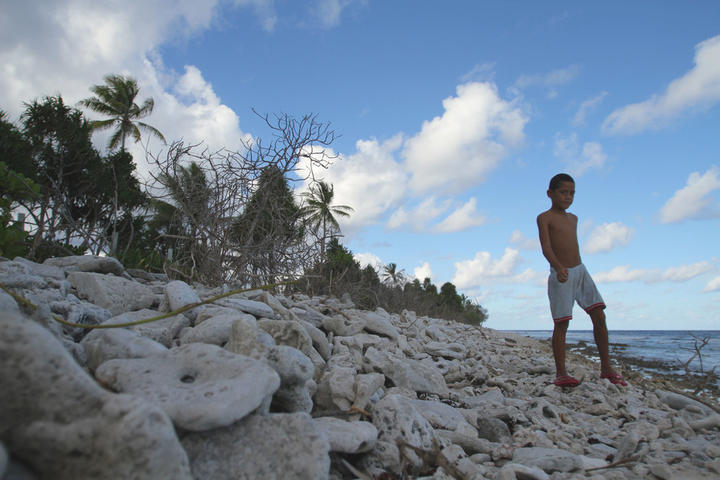
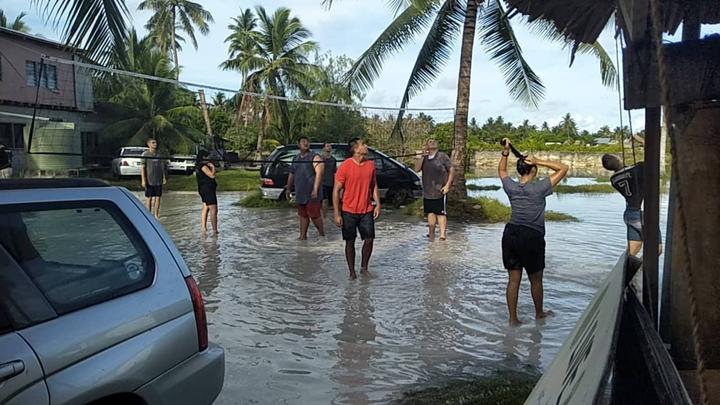
 Misiona Talafu Petelo, aged 19, from Papatoetoe, died following a shooting incident which occurred earlier on Saturday evening on Massey Road in Mangere.
Misiona Talafu Petelo, aged 19, from Papatoetoe, died following a shooting incident which occurred earlier on Saturday evening on Massey Road in Mangere.